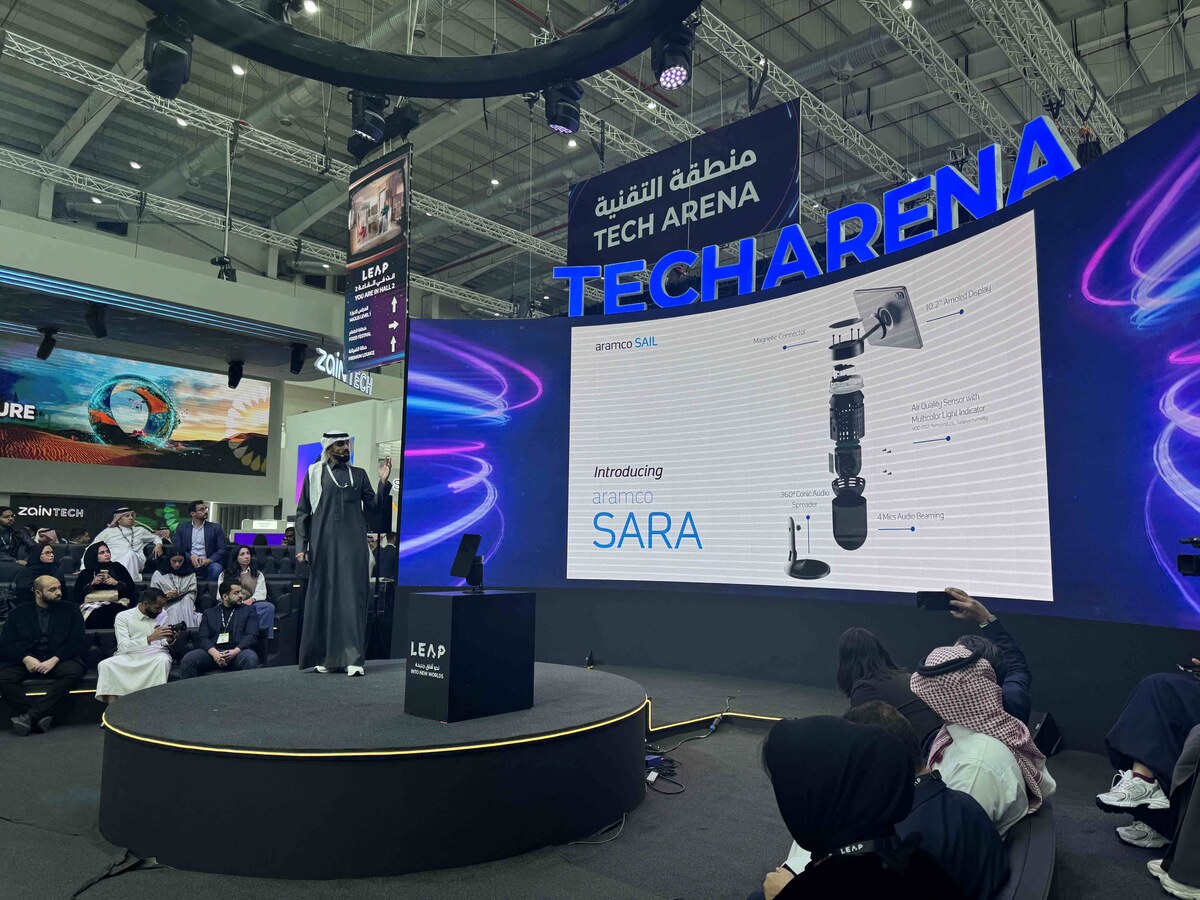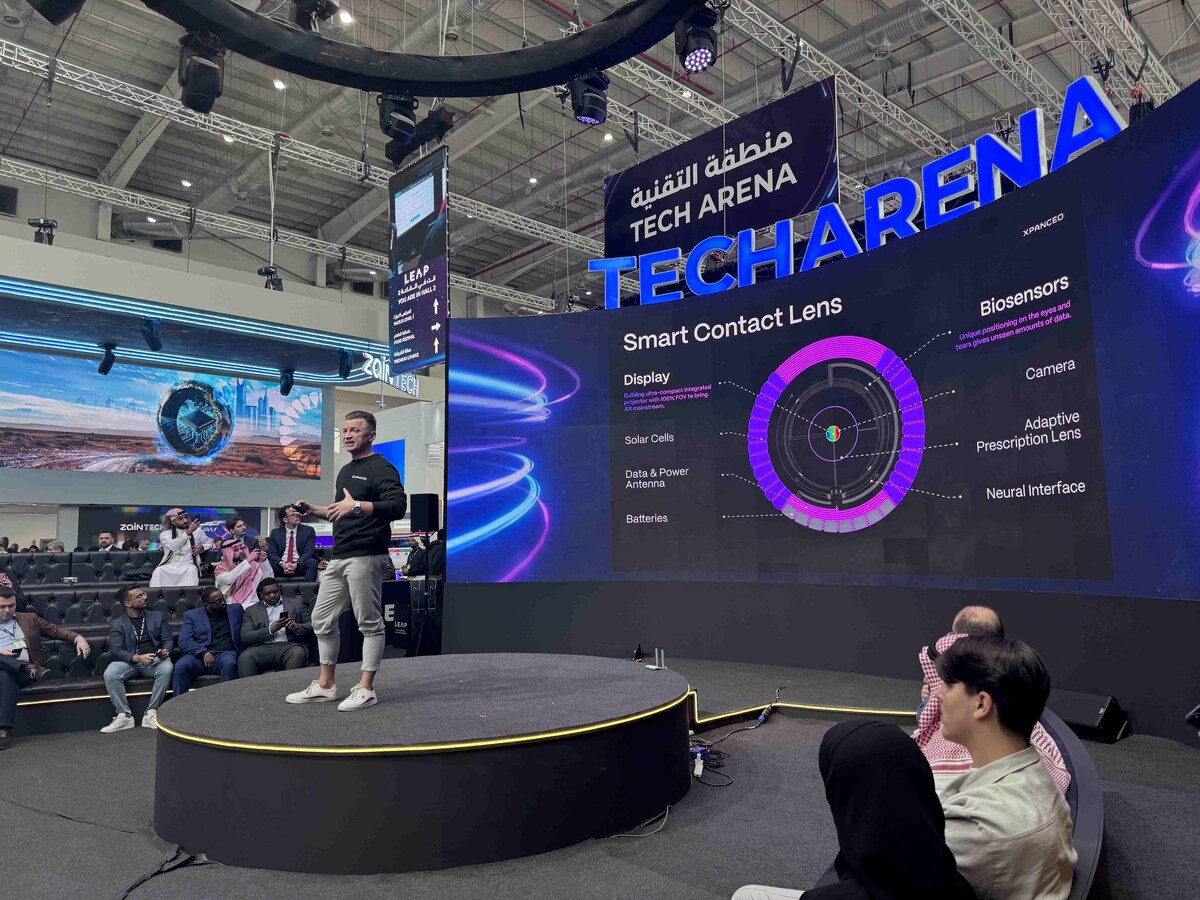RIYADH: Architects need to shift their focus toward comfortable, climate-friendly designs rather than reaching for the stars with often unsustainable skyscrapers, said Sarah El-Battouty, founder of ECOnsult at a conference in Riyadh.
According to El-Battouty, who is also a UN Climate Change High-Level Champions global ambassador, buildings are the most used product on Earth, so modern designs must reflect modern needs.
“Everything is moving forward — machines, products, food, communication — except buildings,” she said.
ECOnsult, an Egypt-based architecture company specializing in green building and environmental strategy, developed the People’s Brief, which examines the essential components people need in daily living. At the top of that list is comfort.
“We’re no longer building things to impress. The future is to get the one target that is very difficult to achieve,” she said.
“I know it sounds simplistic, but it’s really difficult to get people to sleep well, to feel firmer comfort when they’re not too cold or too hot, to predict what is happening in the near future and accommodate the changes in seasonality, and fit all of that into an affordable, accessible, scalable, repeatable building.”
The next step, she said, is integrating sustainable development goals into people’s homes and using that foundation to design climate-resilient communities.
Two years ago, ECOnsult introduced the Green Guidelines document, a set of standards for green architecture in rural, low-income communities.
“No one is sitting and figuring out how they’re going to put these very advanced concepts and apply them to a completely different client… and whether these building technologies are actually scalable in rural communities.”
El-Battouty emphasized the need for a direct connection between technology, forecasting, and accessible adaptation strategies, making them usable for everyone rather than a select few.
Today, ECOnsult has developed the first World Green Building Council-certified small villages for green economies in Egypt.
Five villages have been built so far, housing a total population of 500,000 in energy-, water-, and habitat-saving environments.
By localizing goals and understanding the client, available technology at small scales has made a tremendous impact, El-Battouty said.
ECOnsult has also built the first net-zero rural communities project in the Middle East and North Africa region: a mosque.
Constructed from recycled brick and rammed earth and powered entirely by solar energy, the mosque’s architecture supports 90 percent water recycling, material reduction, construction waste recycling, and the use of local materials.
Governments worldwide are committing to net-zero pledges, such as Saudi Arabia’s goal of achieving 50 percent renewable power by 2030 on its path to net-zero emissions by 2050.
Developers in both the architectural and finance sectors are exploring green buildings and energy; however, “why does it have to begin with the most expensive, large-scale?” El-Battouty asked.
“We are not there yet. We need to perfect this scale.
“Anyone who works in mitigation or quality assurance can understand that small is beautiful because you can test it,” she said.
In most of ECOnsult’s projects, they have achieved up to 10-degree cooling without mechanical assistance.
With fresh air, adequate lighting control, stone, and strategic color usage, much can be accomplished affordably, El-Battouty noted.
“We need to use technologies that partner in informing us: today is a very hot day, your building is not doing well, I will adjust.”
Some of the company’s other projects include the Pavilion Café in Italy, a net-zero building constructed entirely from discarded refrigerator casings and waste food.
Another project is a nursery/kindergarten in China, designed to combat outside air pollution by eliminating plastic casings, placing floor tiles on the ceiling, and ensuring an airtight structure.
Royal Herbs Village is also the first carbon-neutral project in the Middle East and North Africa region. Located on a 4,200-sq.-meter plot in the Western Desert, where temperatures can reach up to 50 degrees Celsius, eight buildings have been constructed to accommodate 120 people in a complex that operates without energy-intensive air conditioning units.
Other projects include a net-zero vocational school repurposed from an old structure using affordable local materials and a model for efficient tiny homes tailored to suit local climates.
Rather than relying solely on advanced technology to solve the climate crisis, El-Battouty stressed that the real solution, with high market return and economic value, lies in catering to local communities.
“We’re not innovators. Villages and people have been building for thousands of years, understanding exceptionally well what to do in the winter, what to do in drought. Otherwise, they wouldn’t have survived.
“Our job is to integrate all of this so we don’t come out on one end, isolated in a much smaller market, and then clap for ourselves that we have succeeded in changing the way we are building.”
A small company with only 20 employees, ECOnsult has been working closely with the Saudi government, particularly in relation to UNCCD COP16, as well as with the Scottish government at the Glasgow climate conferences, to introduce climate-friendly and people-centric architecture into modern buildings and city plans.




























